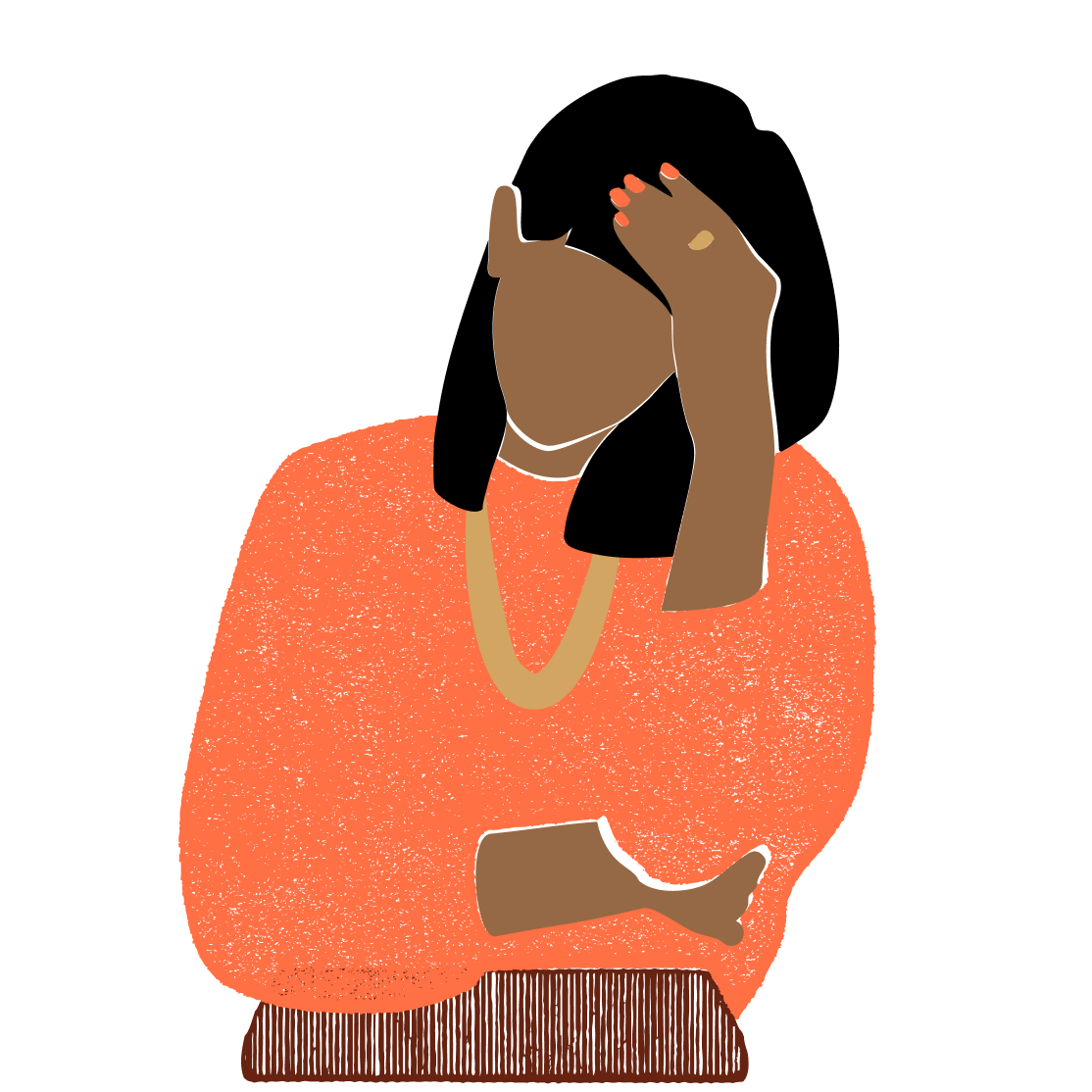Tired? Fatigued? Battery on E? When you want to get your energy levels up, what you need are solutions. That’s where vitamins for energy designed specifically for women may help. Certain supplements may support your body’s physiology to help boost energy levels. This can be a lifesaver when hormonal changes during midlife can sabotage how perky you feel, as a combination of symptoms conspire to drag you down (hello, night sweats, fatigue, and insomnia). Read on to learn about the best women’s vitamins for energy, plus other changes you can make that can help you feel recharged.
We could ask you why you’re tired today, but a better question would be, why aren’t you tired today? Let’s face it: We all have a lot going on. From stress to trouble sleeping to an ill-timed late afternoon coffee, there are any number of reasons why you aren’t getting enough rest or waking up as energized as you’d like. Then, throw in some night sweats and fatigue, thanks to the hormonal changes of menopause, and well…it’s easy to see how the cards are stacked against your former perky self.
Your overall lifestyle factors heavily into persistent feelings of fatigue and low energy, but there are certain vitamins and minerals that play an active role in energy production. Learning about possible nutrient gaps in your diet, when supplements may be helpful, and other ways to support your body’s energy levels will help you feel more “on” mentally and physically all day.
Understanding Energy Production
You eat for energy—your body needs food for fuel. That much is obvious, sure, but it’s time to revisit high school science class. (Just a bit, we promise.) There are three macronutrients in food: carbohydrates, protein, and fat.
During digestion, enzymes break down food molecules into their respective parts:
- Carbohydrates into glucose, which serves as the body’s main source of energy
- Protein into amino acids
- Fats into fatty acids (which store energy)
These molecules make their way into cells. A series of events trigger the production of adenosine triphosphate (ATP) in the mitochondria, which is known as the powerhouse of the cell. ATP is an energy-carrying molecule. It delivers energy to cells, which are used to carry out the cellular processes that allow your body to function.
It’s a highly technical process, but what we’re going to focus on in this article is how vitamins and minerals (from food sources and supplements) can support various stages of energy metabolism and play a critical role in how powered up you feel.
The Importance of Iron for Energy
When it comes to energy supplements for women, iron is at the top of the list—but only in certain circumstances when your body needs more. Iron is a mineral that’s a component of hemoglobin (a protein in red blood cells that zips oxygen from your lungs to the body’s tissues) and myoglobin (a protein used in muscle metabolism). It’s found in a variety of foods, including:
- Meat
- Legumes
- Spinach
- Tofu
- Dark chocolate
- Potatoes
- Whole-grain fortified breakfast cereal
Iron-deficiency anemia (IDA) is common in women, particularly if your periods are heavy. Many women discover that periods during perimenopause go haywire, and they deal with heavy, movie-murder-scene-type flow some months. This loss of blood can lower your iron levels. IDA causes weakness, fatigue, brain fog, cold intolerance, and reduced immune function.
Keep in mind though, that you can have an iron deficiency without anemia. This can be present in perimenopausal and menopausal women, so bleeding isn’t your only indicator here. Testing iron levels is necessary to pick up on the deficiency, so don't be afraid to share this with your healthcare professional.

Your needs for iron differ depending on your life stage. If you’re perimenopausal, you’ll aim for 18 milligrams (mg) through your diet per day. After menopause, those requirements are slashed by more than half, to 8 mg per day. IDA is found through a simple blood test. If you’re found to be deficient, your healthcare provider may recommend upping your intake via iron-rich foods and/or bringing a supplement on board to restore your levels.
Essential Vitamins for Energy
Don’t just focus on iron when thinking about a vitamin that gives you energy. You’ll also want to make sure you’re getting adequate vitamin Bs, C, D, and E:
Vitamin B Complex
Vitamin B is a group of 8 vitamins, including:
- Thiamine (B1)
- Riboflavin (B2)
- Niacin (B3)
- Pantothenic acid (B5)
- B6
- Biotin (B7)
- B12
- Folic acid
Each of these B vitamins have their specialized functions, but as a group they aid metabolism by converting food into energy, as well as support red blood cell formation. Again, without ample red blood cells, your tissues won’t get enough oxygen, and you’re prone to low energy, weakness, and fatigue.
If you don’t get enough B6 or B12 specifically, you can also develop anemia. B6 deficiency is rare since it’s easy to get from food, but people with autoimmune disorders are at an increased risk. B12 deficiency can also affect certain groups like those with celiac or Crohn’s disease (due to problems with nutrient absorption) and vegetarians or those who eat less meat (since B12 is most frequently found in animal foods).
To ensure that you’re hitting your body’s B vitamin needs, you might choose to take a B complex supplement, which contains a higher dose of these B vitamins. The amount and types of B’s used in a B complex formula differs, so check the Supplement Facts panel on the back of the brand you’re looking to buy to see what yours contains—and work with a healthcare provider, like a Midi clinician, to make sure it’s what you need.
Vitamin D
Ah, the sunshine vitamin. Vitamin D is known for promoting bone health (so important after menopause when bones are more prone to fractures). D also reduces inflammation and affects mood-regulating neurotransmitters, which is why researchers in a report in the journal Nutrients point out that lack of vitamin D may promote fatigue and a general low mood.
If you live in the Northern part of the country, you may not get enough vitamin D during the winter months when sunshine is sparse. However, since vitamin D is found in limited foods, most Americans consume about one-third of the recommended intake. To get enough, you can spend time outdoors (briefly without sunscreen) and focus on regularly eating D-rich foods like:
- Fatty fish
- UV-light grown mushrooms
- Fortified milk (dairy or non-dairy)
- Whole-grain fortified cereal
Some people opt to take supplements—if you know you’re struggling to get enough, ask your healthcare professional, or Midi clinician, for their recommendations.
Other Key Vitamins
Want to make sure you’re maximizing your diet for energy? Make sure you’re filling up on foods with vitamin C and E, two more energy-boosting nutrients:
- Vitamin C: You likely won’t develop vitamin C deficiency, a condition known as scurvy. However, let this serve as your reminder to eat foods like strawberries, bell peppers, and tomatoes, all of which are plentiful in C, a vitamin with antioxidant properties that helps the body absorb iron found in plant foods.
- Vitamin E: Another antioxidant vitamin, E helps protect the body from damaging free radicals and counteract inflammation.You’ll find vitamin E in nuts and seeds, peanut butter, and cooked spinach. When it comes to energy, vitamin E has been shown to reduce some of the symptoms of menopause, such as hot flashes and night sweats that can interfere with sleep, resulting in low energy levels.
Minerals for Energy
For more pep in your step, make sure you’re getting enough of the following minerals:
Magnesium
A TikTok phenomenon, the Sleepy Girl Mocktail features magnesium powder as a main ingredient in this supposed sleep-inducing tonic. And whether or not it actually works is up for debate, but magnesium intake has been linked to self-reported better sleep in terms of sleep quality and duration. Of course, better sleep equals less fatigue and (hopefully) more energy during the day. Magnesium also has direct ties to energy. The mineral plays a role in more than 300 enzymatic reactions in the body, including those involved in energy production.
Zinc
Healthy cells require zinc—the mineral is integral for our metabolism, red blood cells, immune system functioning, protein synthesis, among others. You’ll find zinc in beef, poultry, pork, shellfish, cheese, lentils, and Greek yogurt. Zinc is also needed for good physical performance and muscle growth and function.
Herbal Supplements for Energy
Along with a healthy, balanced diet and using vitamin and mineral supplements to correct a deficiency (when needed), you may also want to include herbal supplements to support your body in other ways.
Adaptogens
Adaptogens are “balancing” herbs—they help your body better respond to stress and improve resilience. You can find the following in individual supplements or added to functional foods or beverages.
- Ashwagandha: This shrub may help reduce stress, anxiety, and improve sleep. When you feel less physically and mentally taxed, you may just have more energy, too.
- Rhodiola: This medicinal plant is used to treat lack of energy, burnout, fatigue, sleep issues, mood problems like irritability, physical and mental performance, and more, according to a 2022 review.
- Ginseng: The plant may just help fight fatigue, as ginseng contains compounds that work on the nervous system, have antioxidant and anti-inflammatory properties, and help regulate cortisol (the stress hormone). Research suggests that taking ginseng may even help reduce fatigue, particularly in people with chronic illness.

How to Choose the Right Energy Supplements
First, it’s important to understand what your body needs. For example, are you low in iron? If so, can that be remedied via dietary choices or does your healthcare professional recommend a supplement? Taking ashwagandha for stress? What additional stress-management strategies can you pull into everyday life to help balance the scales?
Remember: Supplement recommendations should be personalized to you, based on lab testing, symptoms, and your health goals. This is also a good time to ask your clinician what type of supplement, if applicable, you should look for. For example, they may recommend taking methylated B12 to enhance bioavailability.
If a supplement is recommended, look for high-quality, independent third-party tested products. Third-party testing is critical in finding a safe supplement, as supplements are not FDA-approved before they go on the market or tested for safety and effectiveness. Third-party testing ensures that they’re labeled accurately and free of contaminants like heavy metals. Many supplements contain added ingredients like added sugar and artificial dyes. Read the Supplement Facts panel to know exactly what you’re getting in yours and choose one you feel good about.
True Stories Of Transformation
Lifestyle Habits for Sustained Energy
Improving your energy should be a long game. What do we mean by that? Because so many lifestyle factors affect your energy and fatigue, it’s easy to turn to quick fixes. However, some habit shifts will be needed to turn your mental and physical energy up, and this can take time and commitment:
- Eat a varied, nutrient-dense diet. A balanced eating plan will provide the range of vitamins and minerals that you need to support your body’s many metabolic functions. Plus, a nutritious diet—rich in veggies, fruits, whole grains, lean proteins, legumes, nuts, seeds, and healthy fats—will also go a long way in keeping your blood sugar steady for more sustained energy throughout the day.
- Stay hydrated: Even mild dehydration is a drag on your mood and physical and mental energy, research shows.
- Exercise: Movement gets endorphins flowing and your blood pumping to boost your energy and mood. Plus, a regular workout routine is linked to better sleep at night.
- Sleep well: Sleep during mid-life can be challenging with hormonal changes and stress at its peak. Improving sleep takes concerted effort, but it’s the foundation for your energy levels, and good sleep helps you stick to a healthy diet and exercise routine. Aim for at least seven hours per night, stick to a bedtime and wake-up schedule, and get morning light exposure, ideally by going outside.
Safety Considerations for Energy Supplements
Just because supplements are sold over-the-counter or easily found online doesn’t automatically make them safe. That goes for vitamins, minerals, and herbal extracts. Again, the supplement industry is largely unregulated, so you don’t want to take these without giving them personal attention and research. Part of that research is consulting with a clinician about if a supplement is worth adding to your routine, and if it’s safe for you to do so. Be sure to tell your clinician about any other over-the-counter or prescription medications or supplements you’re taking, which will help avoid potential interactions.
Above all, a personalized care plan that looks at your overall health and addresses potential gaps with supplements is a more pointed, intentional way to find the tools that will actually help you.
Common Mistakes to Avoid
Fighting fatigue every day feels terrible. And in hopes of getting back to a better place, you might do things that actively work against your energy levels. Here are habits to reconsider:
- Grabbing a coffee or energy drink when you need to feel “more awake.” Similarly, drinking caffeine throughout the day or too late can negatively affect your sleep.
- Eating sugary foods as a pick-me-up or in response to stress. These can spike your blood sugar and cause a crash, resulting in lower-than-before energy levels (and some irritability too).
- Taking excessive supplements. You don’t need them all to be healthy. Guidance from a clinician will help you choose the ones best suited to you.
- Ignoring underlying health conditions that may contribute to fatigue. Before supplementing, your clinician should consider or rule out health problems that are linked to persistent fatigue, such as hypothyroidism (underactive thyroid), autoimmune conditions, sleep disorders like sleep apnea, depression, and diabetes.
Key Takeaways
- Lack of energy is common for midlife women due to hormonal changes, as well as life factors like stress, lack of sleep, and sedentary lifestyles.
- Energy vitamins for women can include iron, B complex vitamins, vitamin D, and magnesium.
- Herbal supplements that are in the category of adaptogens like ashwagandha may buffer stress and burnout and improve resilience and mood to promote energy.
- If you’re looking for more energy, your clinician can draw up a care plan to investigate underlying causes of fatigue, lifestyle changes to improve energy, and vitamin and herbal supplements to support the energy processes in the body.
FAQ
What is the best vitamin for energy for women?
When it comes to women’s vitamins for tiredness and energy, you’ve got options. Some vitamins and minerals that are important for energy include iron, B vitamins (such as B12), and vitamin D. Taking more doesn't necessarily help, unless you’re running low or are deficient in them and taking too much can be harmful, so chat with a clinician first about possible testing so they can customize your vitamin regimen to your needs.
What is the best vitamin for tiredness and fatigue?
If you are perimenopausal and have heavy perimenopausal periods, ask your clinician to check your iron levels. Iron is a mineral that helps your red blood cells bring oxygen to your body’s tissues, so it’s integral to your energy levels.
Is B12 or B6 better for energy?
That’s tough to answer without specific health information. Deficiency in either B vitamin is associated with symptoms like fatigue, weakness, and brain fog. However, it’s rare to be deficient in B6; a deficiency in B12 is more common, especially if you avoid or limit animal foods, which is where B12 is most often found. If you don’t think you’re getting enough B12 in your diet, talk to your clinician about supplementing.
What vitamin is the best source of energy?
A B complex (a collection of 8 B vitamins) can be a good choice if your body is running low in one or more of the B vitamins. These B’s all help your body break down the food you eat into a form where it can be used for energy by the body, and they promote red blood cell formation, which is needed to get energy and nutrients to your cells.
If you’re in perimenopause or menopause and want guidance from clinicians who specialize in women’s midlife health, book a virtual visit with Midi today.
Hormonal change is at the root of dozens of symptoms women experience in the years before and after their period stops.
Our trained menopause specialists can help you connect the dots to guide you towards safe, effective solutions.
Whether you need personalized guidance or a prescription routine to tackle symptoms—including vaginal dryness and irritation, brain fog, hot flashes, sleep trouble, mood swings, and weight gain—we’ve got you covered.
Midi’s mission is to revolutionize healthcare for women at midlife, wherever they live and whatever their health story. We believe that starts with education, to help all of us understand our always-changing bodies and health needs. Our core values guide everything we do, including standards that ensure the quality and trustworthiness of our content and editorial processes. We’re committed to providing information that is up-to-date, accurate, and relies on evidence-based research and peer-reviewed journals. For more details on our editorial process, see here.







